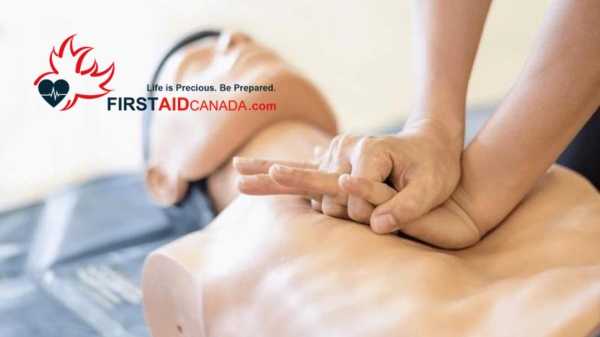Creating a safe and secure workplace goes beyond complying with regulations; it involves empowering employees with the skills and knowledge needed to respond effectively in emergencies. One skill that stands out as paramount is Cardio-Pulmonary Resuscitation (CPR). In this blog post, we’ll delve into the critical importance of CPR training in the workplace and why it should be a cornerstone of every organization’s commitment to employee well-being. 1. Immediate Response to Emergencies Accidents and medical emergencies can happen at any time in the workplace. From sudden cardiac arrests to choking incidents, the ability to provide immediate assistance is crucial. CPR …
Winter and Your Heart: Navigating Cardiovascular Risks
Winter brings more than just frosty temperatures; it may also impact our cardiovascular health. Let’s explore the connection between cold weather and heart concerns, along with practical steps to safeguard your well-being. The Cold Snap and Cardiovascular Risk: Studies suggest that exposure to cold weather can strain the cardiovascular system, potentially leading to increased blood pressure, blood clot formation, and a higher heart rate. Protecting Your Heart in Winter 1. Bundle Up: Dress warmly to reduce the body’s stress response. Layer clothing and cover extremities to maintain body heat. 2. Stay Active: Opt for indoor exercises to counteract the sedentary …
3 Warning Signs of Cardiac Arrest
3 Warning Signs of Cardiac Arrest Cardiac Arrest can happen at any age and at any time. Although these incidences can be extremely hard to predict there are three red flags or warning signs, which could save your life. 1. Dizzy Spells Having dizzy spells or passing out during exercise can be a telltale sign of a heart condition. Dizziness can be a sign that your heart’s rhythm isn’t functioning regularly which may cause you to collapse. Luckily if you collapse with enough consciousness to wake up this is most likely a sign your heart was strong enough to regain …
Defibrillators Save Lives in Schools
Defibrillators Save Lives in Schools Having an AED onsite at school can mean the difference between life and death. Being September we felt it was important to go into detail of the value of having a defibrillator onsite within schools. Age Doesn’t Matter There is a common misconception when it comes to cardiac arrest, often people believe it can only occur in aging or unhealthy adults, when quite commonly children can suffer from sudden cardiac arrest. Often when cardiac arrest occurs in children it is related to a heart condition that had not yet been recognized or diagnosed, so a …
Does Your Child’s School Have a Defibrillator?
Does Your Child’s School Have a Defibrillator Onsite? In our previous blog How to be Prepared for Back-to-School Sports we touched on the importance of adequate first aid supplies within sporting facilities, which included Automated External Defibrillators. Because having an AED onsite can mean the difference between life and death we felt it was important to go into detail of the value of having a defibrillator onsite within schools. Age Doesn’t Matter There is a common misconception when it comes to cardiac arrest, often people believe it can only occur in aging or unhealthy adults, when quite commonly children can …
Warning Signs of Cardiac Arrest
Warning Signs of Cardiac Arrest Cardiac Arrest can happen at any age and at any time. Although these incidences can be extremely hard to predict there are three red flags or warning signs, which could save your life. 1.Dizzy Spells Having dizzy spells or passing out during exercise can be a telltale sign of a heart condition. Dizziness can be a sign that your heart’s rhythm isn’t functioning regularly which may cause you to collapse. Luckily if you collapse with enough consciousness to wake up this is most likely a sign your heart was strong enough to regain it’s strength; …
What to Look for on the Golf Course this Spring
With Spring in full bloom the golfers have started to head out to the courses to break personal records, for friendly competition with friends or maybe even a hole-in-one! If you are a frequent golfer it is important to be familiar with the signs and symptoms of heart attacks. It is not uncommon for cardiac arrest to occur on the golf course as the attacks themselves sneak upon you suddenly. Heart attacks can also happen at any age. For more information on warning signs and symptoms check out our blog on The Difference in Heart Attacks for Men and …
Are you Prepared for an Emergency on the Road?
Are you Prepared for an Emergency on the Road? Did you know 90% of people spend 87 minutes per day driving? And that the average is approximately 100 minutes per day for those commuting? How long do you personally spend in your car? Would you be prepared on the road in the case of an emergency? Throughout summer you may have noticed yourself making longer trips on the road, whether it be to the cottage, camping or a family road trip. Often in these times hospitals and medical facilities can be distant or even unknown in proximity. Life is precious …
Understanding The Difference: Heart Attacks vs. Cardiac Arrest
Giving Back: In October 2014 the First Aid Canada Team gave back in the form of first aid supplies to underprivileged communities in Honduras through the organization The Friends of Honduran Children. The FOHC is a non-profit organization based in Peterborough, Ontario. The organization is committed to the delivery of sustainable programs to the impoverished children and families in Tegucigalpa, Honduras. Among the several services intended to break the cycle of inequality and poverty in this population, medical brigades is one way to contribute. This past October (2014), a health promotion brigade consisting of an interdisciplinary team including nursing students from Trent University, travelled to Honduras …
Welcome to Heart Month 2015!
Every 7 minutes in Canada, someone dies from heart disease or stroke. In fact, it is expected that incidences of heart disease and stroke will increase in the upcoming generations due to poor diets (including high sodium intake), increased stress and sedentary work environments. Heart Disease Facts Nine in 10 Canadians (90%) have at least one risk factor for heart disease or stroke (smoking, alcohol, physical inactivity, obesity, high blood pressure, high blood cholesterol, diabetes) The leading cause of hospitalization in Canada continues to be heart disease and stroke, accounting for 16.9 % of total hospitalizations (19.8% of all hospitalizations …










